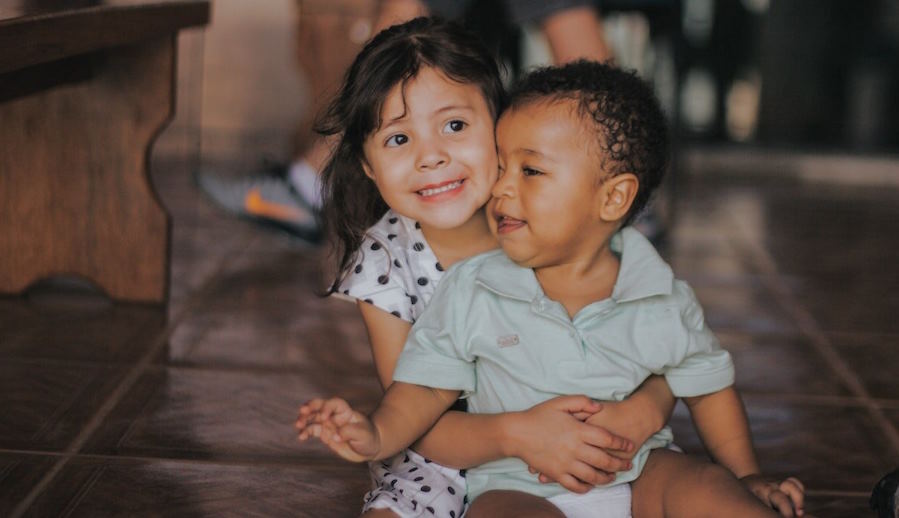
The Art of Sibling Relationships: Fostering Strong Bonds
Sibling relationships are some of the most significant connections we form in our lives. From childhood to adulthood, our brothers and sisters play a crucial role in shaping our identities, providing support, and offering companionship. While sibling relationships can be complex and dynamic, fostering strong bonds among siblings is essential for their personal growth and overall well-being.
Strategies for Fostering Strong Sibling Bonds
Encouraging Positive Communication
Effective communication forms the foundation of any healthy relationship, including sibling bonds. By promoting positive communication within the family, you can create an environment that fosters understanding, empathy, and cooperation. Active listening is an essential skill that allows each sibling to feel heard and valued. Encourage your children to actively listen to one another, paying attention to each other’s thoughts, feelings, and perspectives.
Conflict is natural within sibling relationships, but teaching effective conflict resolution skills can help siblings navigate disagreements in a constructive manner. Encourage them to express their emotions calmly and respectfully, and guide them in finding compromises that satisfy both parties. Moreover, foster an atmosphere of open and honest dialogue, where siblings feel comfortable discussing their thoughts, concerns, and experiences with one another. This promotes trust and strengthens their bond.

Promoting Shared Experiences and Activities
Shared experiences and activities provide opportunities for siblings to connect and create lasting memories together. Establishing family traditions and rituals encourages siblings to participate actively and bond over shared values and experiences. Whether it’s a weekly game night or an annual holiday tradition, these activities foster a sense of togetherness and strengthen the sibling bond.
Collaborative projects and hobbies also play a vital role in fostering strong sibling bonds. Encourage siblings to engage in activities that require cooperation and teamwork, such as building a fort, organizing a family talent show, or working on a creative project together. Engaging in these shared endeavors promotes communication, problem-solving, and mutual respect.
Additionally, prioritize quality time together as a family. Create opportunities for siblings to spend uninterrupted time with one another, whether it’s through family outings, vacations, or simply having meaningful conversations during meals. These moments allow siblings to deepen their connection and develop a sense of camaraderie.
Cultivating Empathy and Respect
Empathy and respect are key ingredients in nurturing strong sibling bonds. Teach your children empathy skills by encouraging them to put themselves in each other’s shoes and consider how their actions and words might impact their siblings. Foster an environment of mutual respect and support, where siblings treat one another with kindness, consideration, and understanding.
It’s essential to avoid favoritism and comparisons among siblings. Each child is unique with their own strengths, talents, and challenges. Celebrate and appreciate these individual differences, focusing on their personal growth rather than comparing them to one another. By cultivating an atmosphere of acceptance and celebrating each sibling’s unique qualities, you create an environment where they feel valued and supported.
Nurturing Individuality and Autonomy
Respecting personal boundaries is crucial in fostering strong sibling bonds. Encourage siblings to respect each other’s personal space, belongings, and privacy. Teach them the importance of seeking consent and asking permission before using or borrowing items. Respecting boundaries fosters a sense of trust and reinforces the idea that each sibling’s autonomy is valued.
Supporting individual interests and goals is equally important. Encourage siblings to pursue their own passions and hobbies, and provide opportunities for them to share their interests with one another. This not only allows siblings to explore their individuality but also creates opportunities for them to support and cheer each other on.
Finally, celebrate each sibling’s unique strengths and accomplishments. Acknowledge their achievements and encourage them to recognize and appreciate their own and each other’s talents. By highlighting their individual strengths, you promote a positive and supportive environment that strengthens sibling bonds.

Parental Role in Fostering Strong Sibling Bonds
Setting a Positive Example
As parents, our actions and behaviors serve as powerful role models for our children. By demonstrating healthy relationships, we can inspire our children to develop strong bonds with their siblings. Show your children what it means to have a loving and supportive relationship by maintaining a positive connection with your spouse or partner. Let them witness open communication, affection, and respect between you and your partner.
Conflicts are inevitable in any relationship, including sibling relationships. However, it is crucial to model peaceful conflict resolution for your children. When disagreements arise, show them how to resolve conflicts calmly and respectfully. Teach them the importance of active listening, compromise, and finding solutions that benefit both parties. By exemplifying peaceful conflict resolution, you provide your children with valuable tools to navigate their own conflicts with their siblings.
Furthermore, demonstrate respect for each child’s individuality. Avoid favoritism and comparisons, and appreciate the unique qualities and strengths of each child. Encourage your children to embrace their individuality and support one another in their personal endeavors. By doing so, you create an environment where each child feels valued and celebrated.
Creating an Inclusive and Supportive Family Environment
To foster strong sibling bonds, it is essential to create a family environment that is inclusive and supportive. Establish family traditions and rituals that involve all family members, including siblings. These shared experiences provide opportunities for siblings to bond, create lasting memories, and develop a sense of belonging.
Promote fairness and equality within the family. Encourage each child’s participation in decision-making processes, and ensure that everyone’s opinions and preferences are considered. Emphasize the importance of treating each child equitably and avoid creating a sense of competition or favoritism.
Encourage collaboration and teamwork among siblings. Assign them joint responsibilities or tasks that require cooperation and coordination, such as organizing family outings or completing household chores together. By fostering a sense of teamwork, you promote a supportive dynamic where siblings learn to rely on and trust one another.
Additionally, create an atmosphere that encourages open communication and active listening among family members. Foster an environment where siblings feel comfortable expressing their thoughts, feelings, and concerns to one another. Encourage them to support and uplift one another, celebrating each other’s achievements and providing emotional support when needed.
